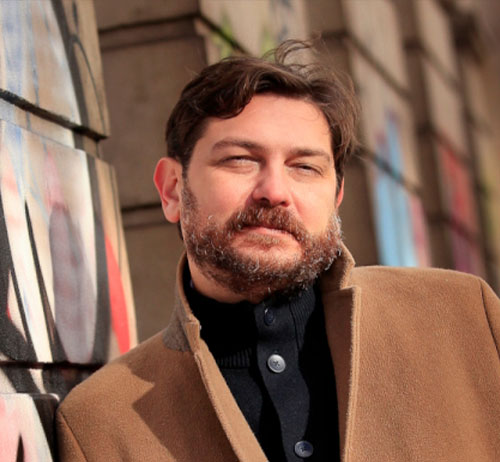What the new trend of ‘deprofessionalisation’ really means for the European gaming industry

Aleksey Savchenko
- Published
- Opinion & Analysis

Under growing pressure from layoffs, burnout and diminishing returns, creative professionals in the games industry are leaving large studios to form leaner, more sustainable ventures. Veteran developer and BAFTA member Aleksey Savchenko explores how the trend known as ‘deprofessionalisation’ is reshaping the business of game development
In earlier reflections on the current state of the games industry, I wrote about a climate of uncertainty and instability. But what we are witnessing now seems to go further than that—it signals a broader structural shift. Increasingly, this shift is being referred to as ‘deprofessionalisation’, a term used to describe the growing number of creative professionals who are turning away from conventional career paths and choosing instead to step outside the system entirely.
What this means in practice is that many experienced individuals are walking away from large studios, rejecting the entrenched hierarchies of corporate development, and declining to pursue the kind of AAA projects that once represented the pinnacle of industry ambition. But this isn’t simply a matter of defiance or disillusionment for its own sake. It reflects a convergence of long-developing pressures that have become impossible to ignore—forces which are now pushing even the most committed developers, engineers, designers and producers to rethink what a meaningful career actually looks like.
The most visible factor, and arguably the catalyst for this wider trend, has been the sustained wave of redundancies sweeping the industry over the past few years. Talented professionals have found themselves laid off in large numbers, often with little warning and limited recourse. For many, the experience of being suddenly cast aside has bred not only personal hardship but also a collective awakening. Those who once kept their frustrations private are now speaking openly about dysfunctional management cultures, outdated recruitment practices, and a working environment that offers less and less in return for their loyalty. It has become clear that what was once tolerated in silence is no longer viable for a generation of workers who have seen how quickly the ground can fall away beneath them.
Another reason the trend has gained momentum is that the economic realities of a long career in game development are far more sobering than the headline figures might suggest. While salaries in major cities can be relatively high on paper—perhaps $200,000 a year if one is lucky—taxation, the cost of living, and other essential expenses quickly consume the bulk of that income. Over the course of two or three decades, even with financial prudence and no major setbacks, the accumulated savings of many senior professionals remain modest. And in a life where personal misfortunes—illness, family breakdown, legal complications—are far from uncommon, even those modest reserves can be lost in an instant. Equity programmes and bonus schemes, which once held the promise of greater reward, have in many cases ceased to deliver on their potential. The result is a growing awareness that the traditional corporate path does not necessarily lead to long-term security or fulfilment.
This realisation has prompted a quiet but unmistakable shift. More and more professionals, particularly those with significant experience, are deciding to take control of their future on their own terms. They are launching independent studios, forming small creative collectives, or stepping away from the industry altogether to pursue new directions. Their decisions reflect not an impulsive rejection of the mainstream, but rather a thoughtful conclusion drawn from lived experience—that if risk is unavoidable, it might as well be taken in service of something they genuinely believe in.
What has collapsed, in essence, is the social contract that once bound individuals to their employers. There was a time when hard work, patience, and compromise were met with steady progression, meaningful recognition, and a degree of job security. That understanding has been eroded to the point of irrelevance. In its absence, the idea that professionals will continue to endure long hours, political dysfunction, and emotional strain, simply for the sake of an uncertain future, is no longer tenable.
At the same time, the wider world has become an additional source of strain. Conversations with peers invariably reveal a shared desire for peace, clarity, and a quieter life. People are fatigued—not just by the demands of their roles, but by the relentless noise of modern existence. The constant churn of news, the anxiety of global affairs, the pressures of social and professional performance—all of it has begun to wear people down. There comes a moment, for many, when the cost of staying inside the machine simply outweighs the benefits. And when that moment arrives, it tends to pass without drama. People leave quietly, often without complaint, and they do not come back.
What this should teach us is that no industry, however innovative or exciting, can sustain itself if it fails to account for the basic human need for dignity, fairness and meaning. The games industry is not maturing by becoming more corporate or more efficient; it is maturing by confronting the limits of its own structures and recognising that its people are not expendable. They are not resources to be used and replaced. They are the industry.
And once those individuals realise that the industry needs them far more than they need the industry, the balance of power begins to shift. They are now in a position to define the terms of their involvement, to choose the scale and shape of the work they want to do, and to find or build environments where their wellbeing is not an afterthought but a foundational priority.
This is what underlies the trend of deprofessionalisation. It is not a sign of collapse but rather the natural consequence of long-standing failures finally being acknowledged. And it points, I believe, towards a future in which smaller, more humane studios—places that nurture creativity and support the people who make that creativity possible—will define the shape of the industry to come.
Whether this direction suits everyone is beside the point. It is already happening.

Aleksey Savchenko is a veteran game developer, futurist, author, and BAFTA member with nearly three decades’ expertise in the tech and entertainment industries. Currently the Director of RnD, Technology and External Resources at GSC Game World, he has worked on the studio’s acclaimed S.T.A.L.K.E.R. 2. He has also worked for Epic Games, known for Fortnite and its technical achievements in middleware technologies worldwide, playing an instrumental role in establishing an Unreal Engine with Eastern European developers. He is the author of Game as Business and the Cyberside series of cyberpunk graphic novels.
Main image: Pixabay
RECENT ARTICLES
-
 The era of easy markets is ending — here are the risks investors can no longer ignore
The era of easy markets is ending — here are the risks investors can no longer ignore -
 Is testosterone the new performance hack for executives?
Is testosterone the new performance hack for executives? -
 Can we regulate reality? AI, sovereignty and the battle over what counts as real
Can we regulate reality? AI, sovereignty and the battle over what counts as real -
 NATO gears up for conflict as transatlantic strains grow
NATO gears up for conflict as transatlantic strains grow -
 Facial recognition is leaving the US border — and we should be concerned
Facial recognition is leaving the US border — and we should be concerned -
 Wheelchair design is stuck in the past — and disabled people are paying the price
Wheelchair design is stuck in the past — and disabled people are paying the price -
 Why Europe still needs America
Why Europe still needs America -
 Why Europe’s finance apps must start borrowing from each other’s playbooks
Why Europe’s finance apps must start borrowing from each other’s playbooks -
 Why universities must set clear rules for AI use before trust in academia erodes
Why universities must set clear rules for AI use before trust in academia erodes -
 The lucky leader: six lessons on why fortune favours some and fails others
The lucky leader: six lessons on why fortune favours some and fails others -
 Reckon AI has cracked thinking? Think again
Reckon AI has cracked thinking? Think again -
 The new 10 year National Cancer Plan: fewer measures, more heart?
The new 10 year National Cancer Plan: fewer measures, more heart? -
 The Reese Witherspoon effect: how celebrity book clubs are rewriting the rules of publishing
The Reese Witherspoon effect: how celebrity book clubs are rewriting the rules of publishing -
 The legality of tax planning in an age of moral outrage
The legality of tax planning in an age of moral outrage -
 The limits of good intentions in public policy
The limits of good intentions in public policy -
 Are favouritism and fear holding back Germany’s rearmament?
Are favouritism and fear holding back Germany’s rearmament? -
 What bestseller lists really tell us — and why they shouldn’t be the only measure of a book’s worth
What bestseller lists really tell us — and why they shouldn’t be the only measure of a book’s worth -
 Why mere survival is no longer enough for children with brain tumours
Why mere survival is no longer enough for children with brain tumours -
 What Germany’s Energiewende teaches Europe about power, risk and reality
What Germany’s Energiewende teaches Europe about power, risk and reality -
 What the Monroe Doctrine actually said — and why Trump is invoking it now
What the Monroe Doctrine actually said — and why Trump is invoking it now -
 Love with responsibility: rethinking supply chains this Valentine’s Day
Love with responsibility: rethinking supply chains this Valentine’s Day -
 Why the India–EU trade deal matters far beyond diplomacy
Why the India–EU trade deal matters far beyond diplomacy -
 Why the countryside is far safer than we think - and why apex predators belong in it
Why the countryside is far safer than we think - and why apex predators belong in it -
 What if he falls?
What if he falls? -
 Trump reminds Davos that talk still runs the world
Trump reminds Davos that talk still runs the world


























